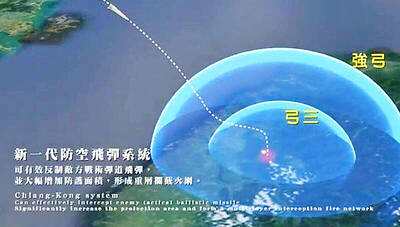Two fighter jets were scrambled on Saturday to escort a Cathay Pacific airplane into Vancouver airport following a bomb threat, police said, in the latest such scare to hit North America.
The threat turned out to be a false alarm, after a dramatic few hours for Flight 839 at the end of a long-haul journey reportedly from Kuala Lumpur, via Hong Kong, with almost 300 people on board.
A bomb threat on board the plane had been called into Richmond, the British Columbia detachment of the Royal Canadian Mounted Police at 10:43am, a police spokeswoman said.
Two CF-18 Hornet fighter jets were scrambled by the North American Aerospace Defense Command (NORAD) to intercept the Cathay Pacific flight, NORAD spokeswoman Holly Apostoliuk said.
The order came “after information was received about a potential threat associated with the aircraft,” she said.
“As a precaution, NORAD fighters escorted the aircraft until it landed safely in Vancouver at about 1:40pm,” she said.
The aircraft remained on the tarmac and passengers were taken off the flight. Their luggage was left behind, public broadcaster CBC said.
“All necessary screening procedures were conducted,” Corporal Sherrdean Turley said. “And there was no threat aboard the aircraft. There was nothing of any concern on the plane, but when a bomb threat is received, we take that very seriously and our investigation will be continuing.”
Passengers spoke of their fright on seeing fighter jets appear in the sky outside the plane.
“I was scared,” one passenger told broadcaster CTV about the moment he noticed fighter jets outside his window. “It was flying very near to our plane.”
“Everyone was quite surprised and taking pictures,” another passenger, Jing Vance, told the Vancouver Sun. “I was waving to him [the fighter jet pilot],” his daughter Candace said.
“All of the passengers were safely deplaned,” Sherrdean said.
“I’d just like to reassure the traveling public that there is no threat to them at this time,” she said.
“The interception was done in accordance with all safety procedures,” another NORAD spokesman, Gary Ross, said.
After disembarking, security officials surrounded the baggage carousel, Jing said.
“We all had to step back. They were very serious,” he said.
CTV said there were 283 passengers and 14 crew members on board the flight that reportedly originated in Kuala Lumpur and made a stop in Hong Kong.

LIMITS: While China increases military pressure on Taiwan and expands its use of cognitive warfare, it is unwilling to target tech supply chains, the report said US and Taiwan military officials have warned that the Chinese People’s Liberation Army (PLA) could implement a blockade within “a matter of hours” and need only “minimal conversion time” prior to an attack on Taiwan, a report released on Tuesday by the US Senate’s China Economic and Security Review Commission said. “While there is no indication that China is planning an imminent attack, the United States and its allies and partners can no longer assume that a Taiwan contingency is a distant possibility for which they would have ample time to prepare,” it said. The commission made the comments in its annual

DETERMINATION: Beijing’s actions toward Tokyo have drawn international attention, but would likely bolster regional coordination and defense networks, the report said Japanese Prime Minister Sanae Takaichi’s administration is likely to prioritize security reforms and deterrence in the face of recent “hybrid” threats from China, the National Security Bureau (NSB) said. The bureau made the assessment in a written report to the Legislative Yuan ahead of an oral report and questions-and-answers session at the legislature’s Foreign Affairs and National Defense Committee tomorrow. The key points of Japan’s security reforms would be to reinforce security cooperation with the US, including enhancing defense deployment in the first island chain, pushing forward the integrated command and operations of the Japan Self-Defense Forces and US Forces Japan, as

INTERCEPTION: The 30km test ceiling shows that the CSIST is capable of producing missiles that could stop inbound missiles as they re-enter the atmosphere Recent missile tests by the Chungshan Institute of Science and Technology (CSIST) show that Taiwan’s missiles are capable of intercepting ballistic missiles as they re-enter the atmosphere and pose a significant deterrent to Chinese missile threats, former Hsiung Feng III missile development project chief engineer Chang Cheng (張誠) said yesterday. The military-affiliated institute has been conducting missile tests, believed to be related to Project Chiang Kung (強弓) at Pingtung County’s Jiupeng Military Base, with many tests deviating from past practices of setting restriction zones at “unlimited” and instead clearly stating a 30.48km range, Chang said. “Unlimited” restrictions zones for missile tests is

NO CHANGES: A Japanese spokesperson said that Tokyo remains consistent and open for dialogue, while Beijing has canceled diplomatic engagements A Japanese official blasted China’s claims that Japanese Prime Minister Sanae Takaichi has altered Japan’s position on a Taiwan crisis as “entirely baseless,” calling for more dialogue to stop ties between Asia’s top economies from spiraling. China vowed to take resolute self-defense against Japan if it “dared to intervene militarily in the Taiwan Strait” in a letter delivered Friday to the UN. “I’m aware of this letter,” said Maki Kobayashi, a senior Japanese government spokeswoman. “The claim our country has altered its position is entirely baseless,” she said on the sidelines of the G20 summit in Johannesburg on Saturday. The Chinese Ministry